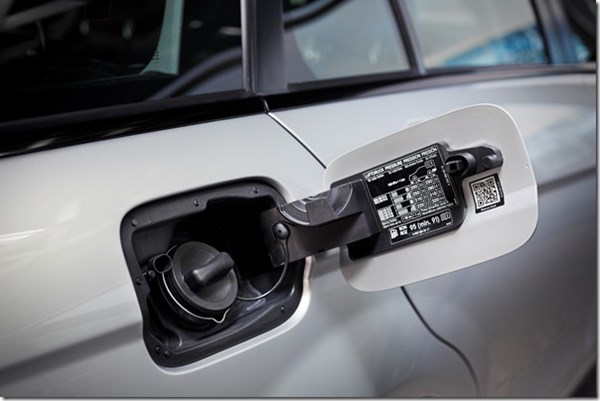Mercedes & the QR Code for Safety
Following on yesterday’s discussion of safety, here’s something that Mercedes-Benz has developed that is beneficial, credible, useful, and au courtant.
#regulations
Following on yesterday’s discussion of safety, here’s something that Mercedes-Benz has developed that is beneficial, credible, useful, and au courtant. It is providing QR code stickers that provides specific vehicle information for first responders.

In the event of an accident, the QR sticker code, which is fixed to the fuel filler flap on one side of a car and to the B-pillar of the other side, provides comprehensive information about the specific model, such as the location of the airbags, battery, and fuel tank—which is good to know when deploying hydraulic cutters on a car.

(Why on the B-pillar and fuel filler flap? Because accident investigators have determined that they provide (1) ready access and (2) both are rarely seriously damaged in an accident.)
While the QR code can be read by a smartphone or tablet with Internet access right now, Mercedes is developing an app that will allow the code to be read without an Internet connection; this is to be ready by the end of June.
Notably, Mercedes has waived its right to patent this technology, so it is available to all OEMs.
One of the consequences of the use of things like advanced high-strength steels is that the first responders have to take a new approach in terms of getting into a vehicle, as this video from the Steel Market Development Institute shows:
RELATED CONTENT
-
Rage Against the Machine
There have been more than 20 reported attacks against Waymo’s self-driving fleet in Chandler, Ariz., since the company began testing the technology on public roads there two years ago.
-
BMW Granted License to Test Self-Driving Cars in Shanghai
BMW AG has become the first foreign carmaker to win permission to test autonomous vehicles on public roads in China, according to the Shanghai Daily.
-
Self-Driving Chevy Bolt Ticketed for Driving Too Close to Pedestrian
Police in San Francisco ticketed the backup driver in a self-driving Chevrolet Bolt for allowing the car to drive too close to a pedestrian in a crosswalk in San Francisco.


.jpg;width=70;height=70;mode=crop)